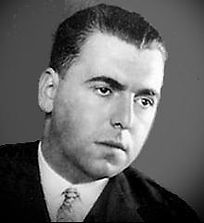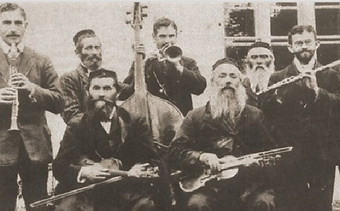



Music in Times of Tragedy
The Music From The Holocaust - A Project by Dr. Amit Weiner
The project "Music in Times of Tragedy" Commemorates the lives and music of the Jewish composers and musicians who were murdered in the Holocaust and the Jewish cultural life inside the concentration camps and the ghettos.
A cooperation with Yad Vashem, and Israeli Embassies around the world,
initiated and managed by Dr. Amit Weiner
Wiegala - by Ilse Weber - UN Geneva Ceremony to Commemorate International Holocaust Remembrance Day 2023
"Music is more important than bread,
especially at times when it is not needed at all"
*This was written on the concerts bulletin board of the Jewish symphony orchestra in Warsaw Ghetto, during the Holocaust
Dr. Amit Weiner is interviewing
about the project in i24 News Channel, January 2018
"music in times of tragedy" 2022
In the Brazilian tv
"music in times of tragedy" 2025
In Russian tv
"music in times of tragedy" 2025
organized by the Embassy of Israel in Moscow
About the Project
“Music in Times of Tragedy” was created by Dr. Amit Weiner in 2012, as a way to preserve the music was written and performed by Jews during the Holocaust. As shown in Dr. Weiner research about the subject, music played a major role in the lives of the inmates in the concentration camps, the Ghettos, and the extermination camps. This consisted of live performances of operatic music, classical music, and even jazz, in horrible living conditions, and truly against all odds.
On a personal note, as a third generation to Holocaust survivors, this project is a very gratifying experience for me. I look forward to presenting it to many other audiences around the globe.
About the Program
The presentation and concerts are dedicated solely to music that was written and performed during the Holocaust. The live music is interwoven with the personal stories and struggles of those musicians, all perished in the Holocaust. The audience learns about the Jewish culture and heritage, a culture that was almost completely lost by the Nazis.
The program is modular and can be modified to fit varies types of audiences: children and adults, uneducated or high-educated, Jewish or non-Jewish, professional musicians or the general public.
To read more about Dr. Amit Weiner CLICK HERE
To contact Dr. Amit Weiner for further information CLICK HERE
Press
March 2018
Czech Republic embassy in Beijing official publications:
Article in The World and China Magazine (English, Chinese)
Article in China Times (Chinese)
January 2018
September 2017
April 2017
January 2017
MRTV - Myanmar Government Radio & Television Service:
MITV - Myanmar International Television:
Israeli embassy in Thailand official publications:
Israeli embassy in Myanmar official publications:
September 2016
The British Vietnamese International School in Hanoi Facebook post (English)
January 2016
UNIS (UN International School) official publications
Israeli embassy in Vietnam official publications:
Article in the Vietnam News (English)
Article in the Institute for Africa and Middle East Studies (Vietnamese)
Article in the ICT News (Vietnamese)
April 2014
Yad Vashem official publication (Hebrew)
Yad Vashem official publication (English)
April 2012
Yad Vashem official publication (Hebrew)
Videos
Years of Childhood / Mordechai Gebirtig
[with English Subtitles]
Hey Zigelech / Mordechai Gebirtig
A TV review about the project in MITV (Myanmar International Television):
Events
March 15, 2018
The Embassy of Israel in Beijing annual event.
Concert and presentation
Beijing, China.
January 26, 2017
The Embassy of Israel in Thailand annual event.
Concert and presentation
Sikaporn University,
Bangkok, Thailand
January 25, 2017
The Embassy of Israel in Myanmar annual event.
Concert and presentation
Yangon University,
Yangon, Myanmar
January 27th, 2016
The Embassy of Israel in Vietnam annual event in cooperation with the UN local office and Institute for America and Middle East Studies
College of Arts, Hanoi, Vietnam
January 27th, 2016
Youth Concert & Presentation
The UN International School in Hanoi, Vietnam
January 26th, 2016
Intimate presentation for the Jewish Community
Israeli Ambassador's residence in Hanoi, Vietnam
January 26th, 2016
Youth Concert & Presentation
The British Vietnamese International School, Hanoi, Vietnam
January, 2014 - 2016
Guidance and assistance for the annual international Holocaust Remembrance Day events by the Embassy of Israel in Nepal
Katmandu, Nepal
April 27th, 2014
Students Concert & Presentation
in cooperation with the Jerusalem Academy of Music & Dance
Yad Vashem Institute, Jerusalem, Israel
April 19th, 2012
Youth Concert & Presentation
in cooperation with the Jerusalem Academy of Music & Dance
at Yad Vashem Institute, Jerusalem, Israel
Our Town is Burning / Mordechai Gebirtig
Few of the many Jewish composers who
were murdered during the Holocaust
 Gideon KleinGideon Klein (1919-1945) was burn in Moravia, now the Czech Republic, in 1919. He was a gifted pianist who studied at the Prague conservatory of music. At the age of 21 he was offered a scholarship to the Royal Academy of Music in London, one of the best music schools in the world. However, during this period he could no longer emigrates from his country. A year later, he was deported to Theresienstadt concentration camp. At the camp, he became one of its most influential cultural figures. |  Ilse WeberIlse Weber (1903-1944) was a Jewish poet, a singer and songwriter. She was uneducated in music, but wrote some of the most memorable and important songs during the Holocaust. She was voluntarily transported to Auschwitz with the children of Theresienstadt and killed in the gas chambers, along with her son, Tommy in 1944. |  Hans KrasaHans Krasa (1899-1944) was a one of the most influential composers in Theresienstadt concentration camp. His most important work, probably THE most important composition that was performed during the Holocaust, is the children opera Brundibár which was performed 55 times in the camp and also features in the Nazi propaganda made for the Red Cross in 1944. |
|---|---|---|
 Pavel HaasThe Czech composer Pavel Haas (1899-1944) was a Jewish composer from the city of Brno. He composed many pieces, but had a very high selfcriticism, therefore he agreed to publish only 18 of his mature compositions. Before being sent to Theresienstadt concentration camp, he divorced his Czech wife, in order to save both her and their daughter. In Theresienstadt he wrote at least eight pieces that we know of, but only two of those survived the war. Pavel Haas was murdered in Auschwitz in 1944. |  Mordechai GebirtigMordechei Gebirtig (1877-1942) was born in 1877 in Krakow, Poland. He was a carpenter, a poet and a composer who drew on Yiddish folklore for his material. His most famous song "Our Town Is Burning" was written in 1938, following an attack on a Jewish inhabitants in a small Polish town. During the Holocaust, the song inspired young Jews to actively resist the Nazis. It became the symbol and the hymn of the Jewish struggle. Mordechei Gebirtig was murdered in June 1942 in the ghetto of Krakow |  Erwin SchulhoffErwin Schulhoff (1894-1942) was a child prodigy, and when he was only ten years old, he was admitted to the Prague conservatory of music. Later on, he studied composition and piano with such important figures as Claude Debussy and Max Reger. In 1941, the Soviet Union granted him citizenship, however, before he was able to flee from Czechoslovakia, he was arrested and imprisoned in a Nazi concentration camps. Erwin Schulhoff was murdered in the concentration camp in 1942. |
 In the concentration campsA very important fact is that music had a significant role in ALL THE GHETTOS AND ALL THE NAZI CONCERNTRATION CAMPS. There are unbelievable stories about how hard it was to have a musical and cultural life inside those camps, and yet how far people went in order to have it in their lives. The music made them feel human again, gave them hope, and strengthened their will to live. |  Viktor UllmannViktor Ullmann (1898- 1944) wrote about Theresienstadt: "By no means did we sit and cry by the rivers of Babylon. Our artistic efforts were equal to our passion for life – and I am convinced that anybody who had to fight for his life and his art will agree with me" |
An Article in "Israel Today" Newspaper.
January 27, 2021

concert at The official ceremony of
the United Nations in Geneva
January 27, 2021
live streaming at the un tv

כתבה בעיתון "גבעתיים פלוס" - פברואר 2023

